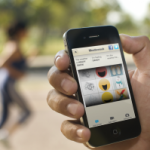 The weather is notoriously difficult to predict, and whilst I have the impression that our attempts to forecast it have improved in recent times, they still aren’t delivering anything you’d want to put your house on.
The weather is notoriously difficult to predict, and whilst I have the impression that our attempts to forecast it have improved in recent times, they still aren’t delivering anything you’d want to put your house on.
I wrote at the back end of last year about a project underway at UC Davis to try and use the crowd to better regulate temperatures on campus.
The project offers real-time, crowdsourced feedback about energy and temperature on campus. Users visit the website and are presented with a campus map with energy use intensity for each building.
“Our initial goal is the feedback system itself, to let us know how buildings are doing,” the developers explain.“We can’t be on site monitoring the 10 million square feet of campus at all times; we don’t have enough bodies. But all the buildings are occupied by thousands of students, staff and faculty; now they can supply us with the desired information.”
Crowdsourcing weather forecasting
Could a similar approach work in predicting the weather? That’s the aim of a new app called Sunshine that wants to enlist us all in the hope that we can help provide better weather forecasting.
The app is currently in beta testing and uses standard data from the National Oceanic and Atmospheric Administration (NOAA) combined with atmospheric pressure readings that are captured by our smartphones.
Apparently, the latest smartphones come complete with a built in barometer that can measure such things. They’re usually used for showing elevation and the like, but changes in air pressure can also be used as a decent signal of weather changes.
In a further nod to the crowd, the app will also recruit users themselves to report snap weather events. During the current beta testing, around 250 people are road testing the app, with the plan being to release it in the next few days on the iPhone.
The developers suggest that just three users sending in data per square mile is all that’s needed to ensure accurate results.
Of course, whilst such an app may well provide accurate reports of the weather right now, making predictions of the future using crowd data is somewhat trickier.
That would require the crowdsourced data to be combined with weather data models. Whilst this isn’t out of the question, and indeed is being trialled with services such as PressureNet and WeatherSignal, it may be a little while before we can rely on the crowd to accurately forecast the weather for us.
It's certainly an interesting area. I'd imagine the best use for it would be to feed back intelligence to the models that do predict this stuff. ie how accurate were they based upon local feedback.
That's certainly how I'd imagine things would go. Makes perfect sense.